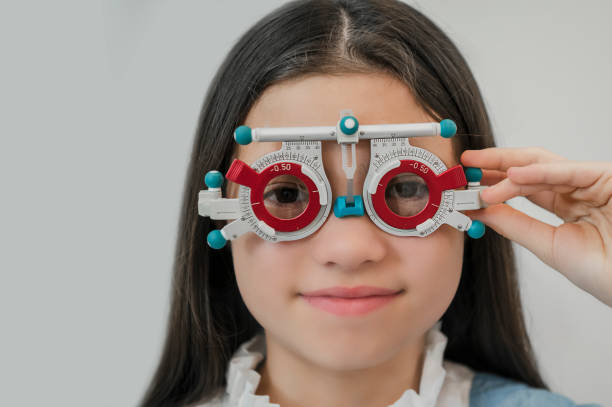
Ever wondered how long an eye prescription stays good for? You're not alone. Mountain Shadow Vision Center is here to shed light on the often-confusing world of optometry, helping you grasp when your prescription turns stale and why frequent eye exams count.
Key Takeaways
Eye Exam Expiration: Most prescriptions for eyeglasses and contact lenses expire after one to two years.
Routine Examinations: Regular eye check-ups serve as preventive maintenance for your eyes, recommended every one to two years.
Lifestyle Impact: Your lifestyle, including screen time and dietary habits, can dictate how frequently you need to schedule eye exams.
How Long is an Eye Prescription Good For?
Remember the day you sat in the cozy chair at Mountain Shadow Vision Center, read those tiny letters off a chart, and voilà! You received your fresh new eye prescription. But prescriptions, like the best love stories, have an expiration date. For most eyeglasses and contact lenses, that date comes around one to two years after your exam.
What Dictates Prescription Lifespan?
It's not arbitrary; medical professionals have good reasons for setting these expiration dates. Your eyes change over time. Factors like age, health conditions such as diabetes, or even medications can alter your vision.
How Often Should You Have An Eye Exam?
Routine eye exams function like a car's regular oil change. No, they don't involve grease and grime, but they do serve as preventive maintenance for your eyes. Experts recommend getting your eyes examined every one to two years, depending on factors like age, health, and whether you currently wear corrective lenses.
Real-Life Example: The Gamer's Tale
Let's consider Tim, a 25-year-old avid gamer. He spends hours in front of his computer screen, engaging in intense battles. After a year, he starts to experience frequent headaches and blurry vision. Realizing something's amiss, Tim schedules an eye exam and learns that his vision has declined. If Tim had maintained regular eye check-ups, he might have caught these changes earlier.
Age Matters
For children, annual eye exams become essential because their eyes rapidly change as they grow. For adults over 60, regular check-ups can help detect age-related conditions like cataracts or macular degeneration earlier.
How Lifestyle Influences Your Eye Health
Yes, how you live your life can indeed affect how often you should visit your optometrist. If you're like Tim and clock in many hours in front of a screen, you may need to schedule exams more frequently.
Diet and Exercise
Surprisingly, what you eat and how you move can affect your vision. A balanced diet rich in nutrients can actually help maintain good eye health. On the flip side, a sedentary lifestyle, coupled with poor eating habits, can expedite the need for a new prescription.
Occupational Hazards
Work in an environment where you're exposed to dust, chemicals, or bright lights? Extra precaution becomes crucial, making frequent eye exams a non-negotiable part of your healthcare routine.
Concluding Thoughts
Your eyes serve as windows to the world; keeping them in tip-top shape should rank high on your priority list. Remember, eye prescriptions don't last forever. Mountain Shadow Vision Center can assist you in staying ahead of the game by providing a wide range of top-notch optometry services. From comprehensive eye exams and contact lens fittings to diagnosing and managing eye diseases, our experts are committed to delivering personalized care in a relaxed and light-hearted family environment. So, if you notice words starting to blur on your screen or if you're simply due for a check-up, don't hesitate. Schedule your next eye exam today and experience the highest quality of vision care.







